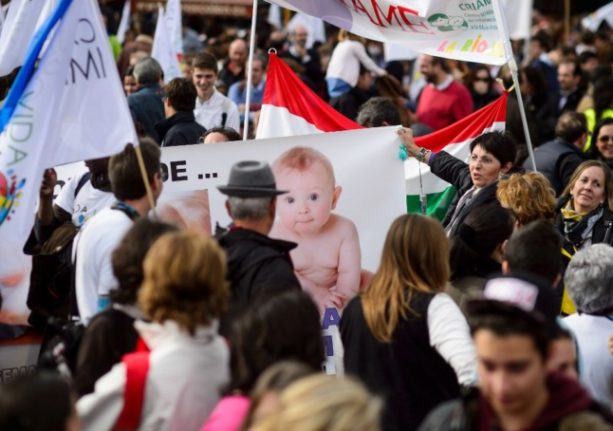“The children had no idea that they were becoming members. It is deeply immoral to recruit members that are not aware,” said Eivor Johnsson, mother of a 13-year-old who was almost recruited by the group, to DN.
Johnsson’s son only escaped the recruiters when he phoned his mother to find out the last four digits of his personal identity number, given to all Swedish citizens at birth, which the recruiters had asked for.
When Johnsson contacted the chairperson for the movement, Emelie Litsgård, she was told “this is how we operate”. Litsgård also argued that all the children were aware that they were joining the anti-abortion movement.
“But they weren’t, I know that,” said Johnsson who told DN that she knows of at least four children who were recruited by the group.
She pointed out that as the group issues no form of proof of membership, the parents of the kids never find out and subsequently can’t do anything about it. She also questioned how much of the message a twelve-year-old could really grasp.
But according to Litsgård, the recruiters are very clear with the information to the new members. Also, the leaflet handed out is aimed at young people and is written in simple terms that everyone can understand.
“And the form says very clearly that it pertains to membership for a year,” Litsgård wrote in an email to DN.
Litsgård also told DN that very few of the group’s members are under the age of 13, as their campaign is aimed at teens between 13 and 18. And she is adamant that the recruited members are aware of what they are signing.
“We ask much more on our membership applications than the Swedish National Board of Youth Affairs (Ungdomsstyrelsen) requires, as we demand both personal identity number and signature,” Litsgård wrote to DN.
Johnsson, however, is not satisfied with this. According to the DN report, she suspects that the organisation recruits kids this way in order to get higher subsidies from the government.
Membership numbers is one of the factors that determine how large a subsidy an organisation will receive.
During 2011, “Älska livet” will receive over 1 million kronor ($153,340) in government grants and subsidies.
Litsgård later wrote an email to The Local in which she reiterated what she had earlier said to DN – that all recruitment forms show clearly that it is a year’s membership that they sign up for, that all those who have signed up are aware that they have joined. Furthermore she claimed that the group aims their campaign at children over 13 but that they won’t turn away anyone younger- which is in line with the regulations from the Swedish National Board of Youth Affairs.
She also added that the organisation is one of many that receives subsidies from the government.


 Please whitelist us to continue reading.
Please whitelist us to continue reading.
Member comments